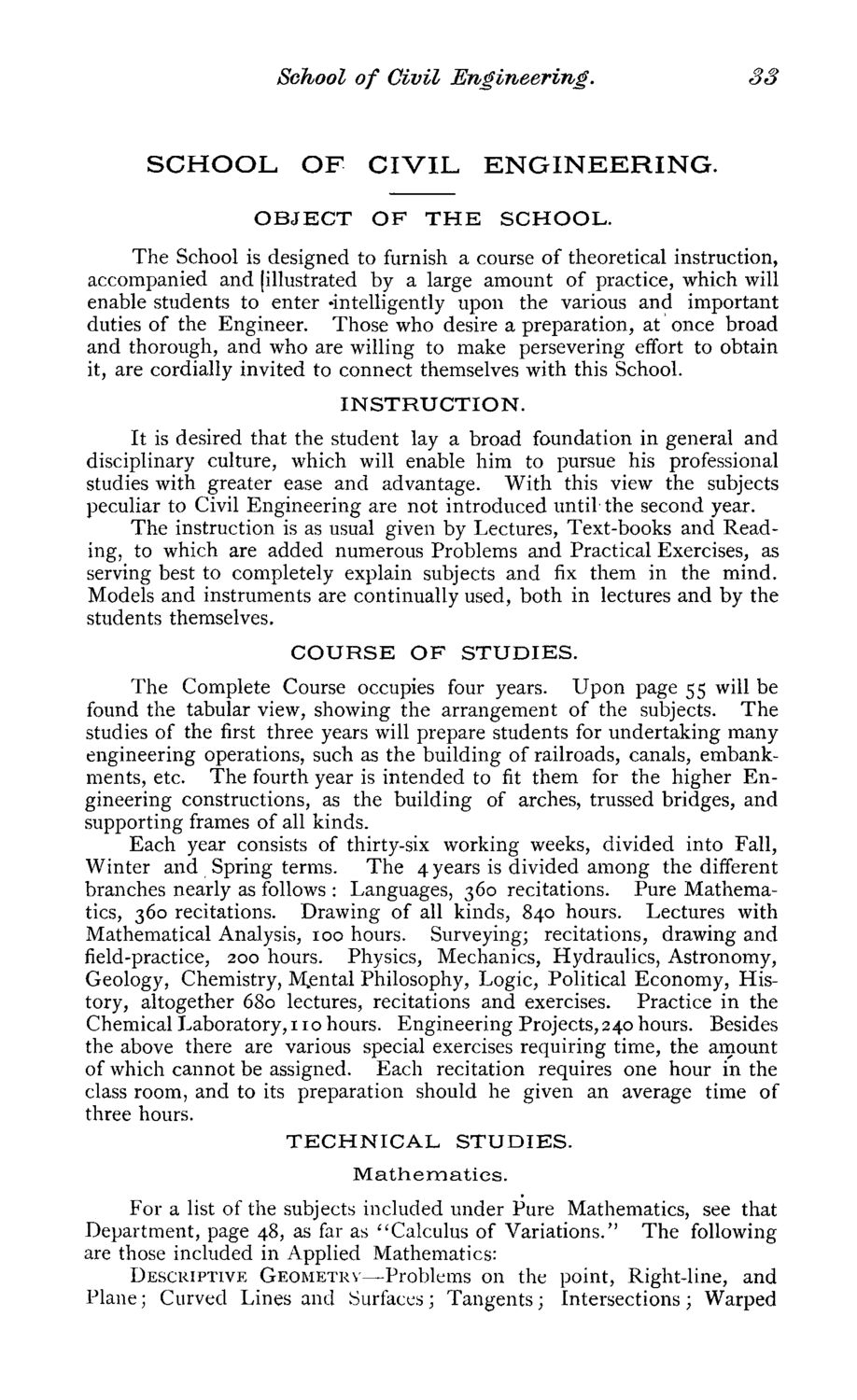| |
| |
Caption: Course Catalog - 1872-1873
This is a reduced-resolution page image for fast online browsing.

EXTRACTED TEXT FROM PAGE:
School of Civil Engineering. SCHOOL OF CIVIL ENGINEERING. OBJECT OF THE SCHOOL. 33 The School is designed to furnish a course of theoretical instruction, accompanied and (illustrated by a large amount of practice, which will enable students to enter •intelligently upon the various and important duties of the Engineer. Those who desire a preparation, at once broad and thorough, and who are willing to make persevering effort to obtain it, are cordially invited to connect themselves with this School. INSTRUCTION. It is desired that the student lay a broad foundation in general and disciplinary culture, which will enable him to pursue his professional studies with greater ease and advantage. With this view the subjects peculiar to Civil Engineering are not introduced until the second year. The instruction is as usual given by Lectures, Text-books and Reading, to which are added numerous Problems and Practical Exercises, as serving best to completely explain subjects and fix them in the mind. Models and instruments are continually used, both in lectures and by the students themselves. COURSE OF STUDIES. The Complete Course occupies four years. Upon page 55 will be found the tabular view, showing the arrangement of the subjects. The studies of the first three years will prepare students for undertaking many engineering operations, such as the building of railroads, canals, embankments, etc. The fourth year is intended to fit them for the higher Engineering constructions, as the building of arches, trussed bridges, and supporting frames of all kinds. Each year consists of thirty-six working weeks, divided into Fall, Winter and Spring terms. The 4 years is divided among the different branches nearly as follows : Languages, 360 recitations. Pure Mathematics, 360 recitations. Drawing of all kinds, 840 hours. Lectures with Mathematical Analysis, 100 hours. Surveying; recitations, drawing and field-practice, 200 hours. Physics, Mechanics, Hydraulics, Astronomy, Geology, Chemistry, Mental Philosophy, Logic, Political Economy, History, altogether 680 lectures, recitations and exercises. Practice in the Chemical Laboratory, 110 hours. Engineering Projects, 240 hours. Besides the above there are various special exercises requiring time, the amount of which cannot be assigned. Each recitation requires one hour in the class room, and to its preparation should he given an average time of three hours. TECHNICAL STUDIES. Mathematics. For a list of the subjects included under Pure Mathematics, see that Department, page 48, as far as "Calculus of Variations." The following are those included in Applied Mathematics: DESCRIPTIVE GEOMETRY—Problems on the point, Right-line, and Plane; Curved Lines and Surfaces ; Tangents; Intersections ; Warped
| |